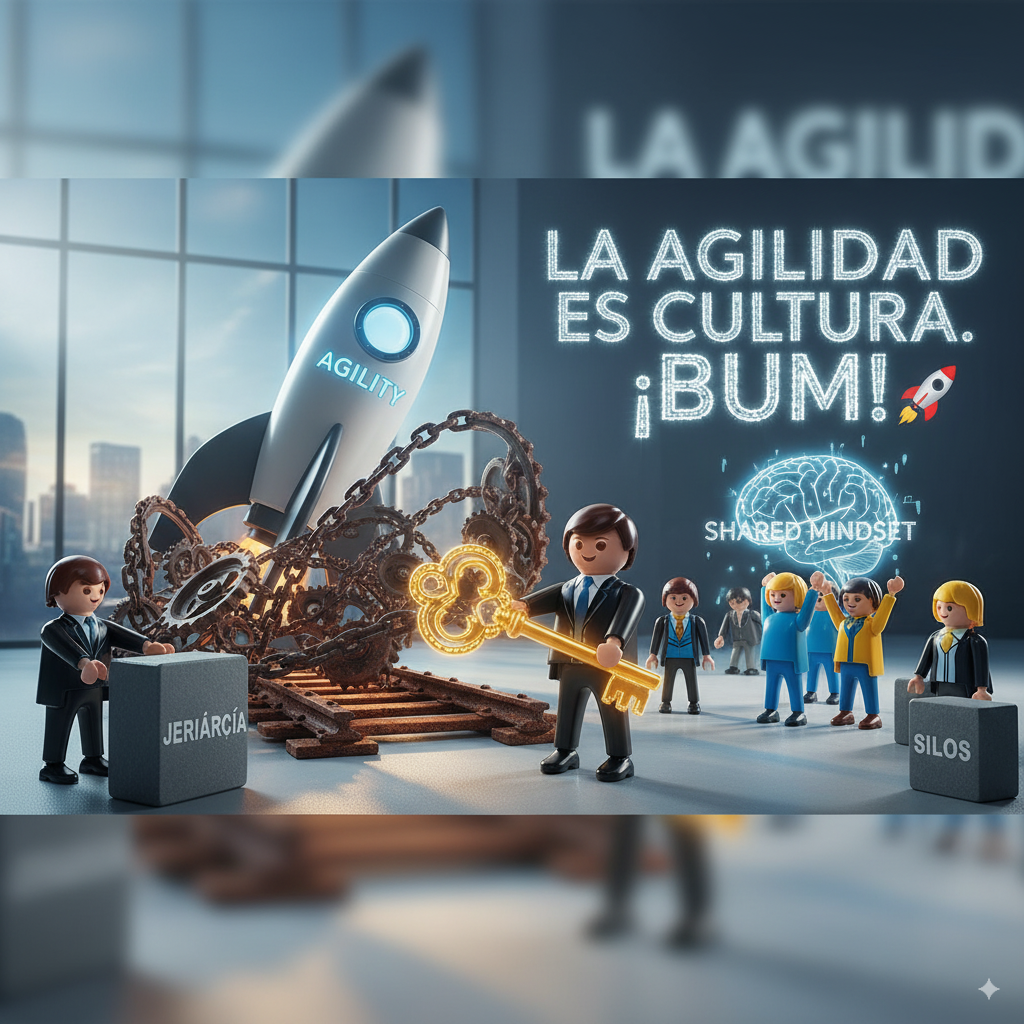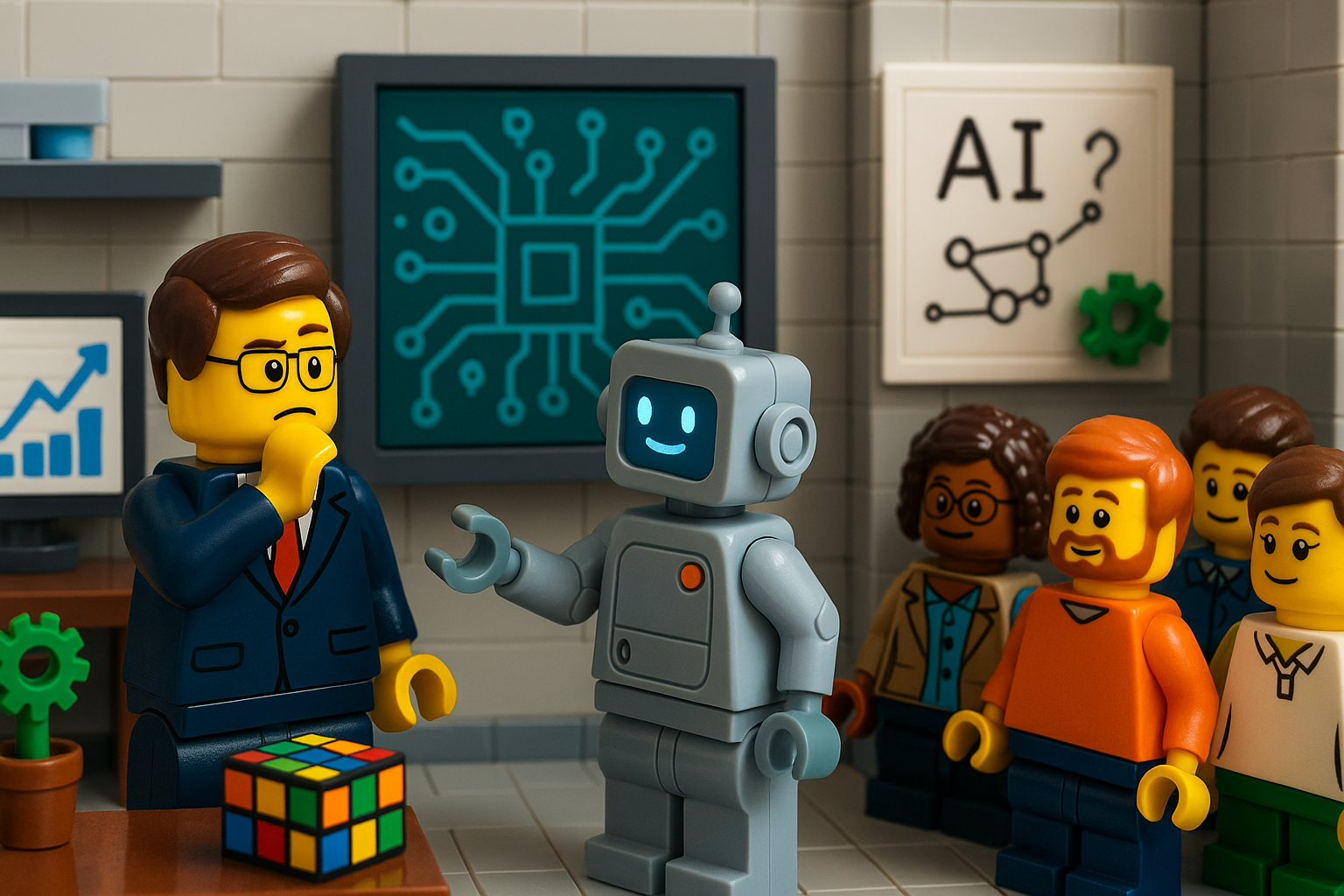
That Artificial Intelligence is already transforming our lives, even the most skeptical admits it. It automates, predicts, translates, converses. But its greatest potential lies not in what it does… but in what it invites us to rethink.
Because the real question is not how I can use AI in my company, but what kind of organizational culture my company needs to deploy its full value.
And that’s where many organizations face a paradox: they want results of the future… with mindsets of the past.
At SmartWay, we see it every day in organizational consulting processes: technology advances faster than culture. And if it is not accompanied by a deep transformation in values, habits and leadership, AI remains on the surface.
Curiosity is the new organizational superpower
Have you noticed that, with AI, there are fewer and fewer certainties and more and more questions?
Today a new tool is launched. Tomorrow there’s a better one. And the day after… nobody knows. And that, far from being a problem, can be an incredible lever. But only if your culture is prepared for something that many organizations still don’t know how to sustain: curiosity.
In cultures dominated by predictability and control, curiosity can seem like a threat. But in complex environments, curiosity is the key muscle for organizational adaptation to AI.
A curious organization does not need to know everything. It needs to know how to learn. It needs to know how to explore. To know how to ask.
How comfortable is your organization with saying “we don’t know…yet”?
From our experience in organizational consulting, one of the first signs of IA readiness is precisely this: a culture that legitimizes questioning as a collective learning tool.
Redesigning from purpose (not from habit)
When a powerful new technology – such as AI – comes along, the first impulse is usually to apply it quickly: what do we automate, what can we do more efficiently, where does it save us time?
But if we only use AI to do faster what we were already doing, we run the risk of scaling processes that no longer make sense.
The real leap is in redesigning from purpose.
Ask again: Why are we doing this? Does it add value? For whom?
The organizations that are truly ready to live with artificial intelligence are not the quickest to adopt tools, but the most courageous in rethinking their culture from the ground up.
And that is precisely what we work on at SmartWay when we accompany cultural transformation processes with AI.
More voices, better decisions
One of the most powerful promises of artificial intelligence is that it helps us make more informed, faster, smarter decisions. But whose decisions?
In many organizations, AI decisions are made in very closed circles. And that limits their impact.
AI not only transforms processes, it transforms relationships. Who participates in the conversation? Who can question? Who can say “I don’t understand this”?
A good conversation about artificial intelligence and organizational culture should include a diversity of voices, empathy and courage.
From SmartWay we propose to redesign these spaces from listening and co-creation. Because without inclusive conversations, there is no real adaptation to the cultural change that AI implies.
Humility is the new form of leadership
Until recently, a leader was expected to have all the answers. But the complexity that artificial intelligence brings demands a different kind of leadership.
One who knows how to say: “I don’t know… but we’ll find out together”.
Leading in this context is no longer about controlling, but about facilitating. It is not about imposing, but about sustaining uncertainty without blocking the team.
In our organizational consulting programs, we see how leadership based on humility, listening and presence has a profound impact on the healthy adoption of new technologies.
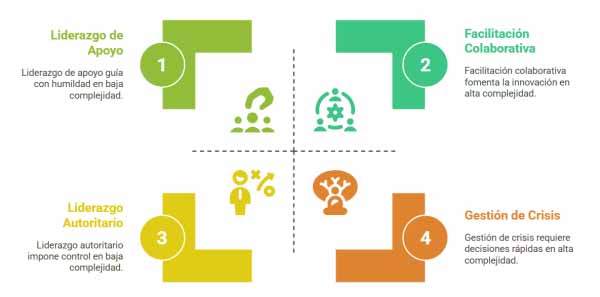
Continuous learning as an organizational muscle
AI advances. And if the culture doesn’t learn, it breaks down.
Many organizations invest in technical training, and that’s fine. But the real leap occurs when the culture develops an open, flexible and evolution-hungry mindset.
Learning in the context of AI is not just about knowing more. It is to change faster. It is to change better.
Organizations that thrive in this new scenario are those that make mistakes a source of improvement, not punishment. Those that prioritize learning over perfection. Those that build safe environments to make mistakes and try again.
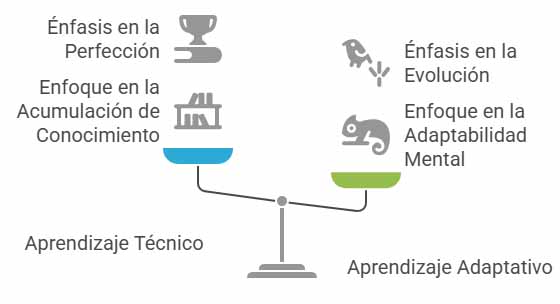
Designing trust as a new operating system
Every time a new technology appears, a silent question also appears:
Is this going to help me… or leave me out?
Artificial intelligence is no exception. And if organizations do not design spaces to talk about these emotions, what grows is not innovation, but distrust.
And distrust blocks transformation.
In our accompaniments from SmartWay, we insist on something essential: transformation is not sustained with technology, it is sustained with trust.
Design environments where mistakes are not penalized, where decisions can be shared, and where the future is not a threat, but a common project.
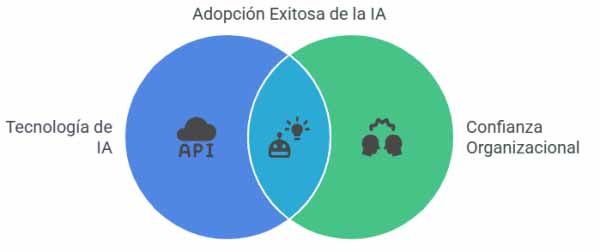
Artificial Intelligence is already here and your culture?
AI is not coming to replace you. It comes to invite you to rethink.
How you decide. How you lead. What you value. What conversations you open. What habits you sustain… even if they no longer work.
And that’s where it gets interesting.
Because it’s not about running after the latest tool, or becoming an expert in every model. It is about building an organizational culture that moves with the new without losing the essential.
A culture where:
- Curiosity does not bother
- Eastern purpose
- Voices are heard
- Leading does not mean controlling
- Do not hide your fear, but go through it with confidence.
From SmartWay we accompany you to create that culture. At your own pace, with your people, from what you already are.
We invite you to learn how we do it from our organizational consulting.
What if AI was just the beginning?
Artificial intelligence is changing the rules of the game. But it’s not coming to replace you. It’s coming to invite you to rethink.
How you decide, how you lead, what you value, what conversations you open (or avoid), what habits you sustain… even if they no longer work. And that’s where it gets interesting: the beginning of a culture that thinks networked, that converses deeply, that dares to redesign its sense of value. A culture that is more alive, more free, more human.
Because the question is not just whether your company is ready for AI.
The real question is: what does your company want to be… now that AI is part of the game.
If you are interested in further exploring how to build more adaptive cultures, you may also be inspired by this course: Is Change Really That Hard?
If you want to take a deeper dive into how AI is redefining business leadership, we recommend this Harvard Business Review analysis: How AI is Changing Leadership.




